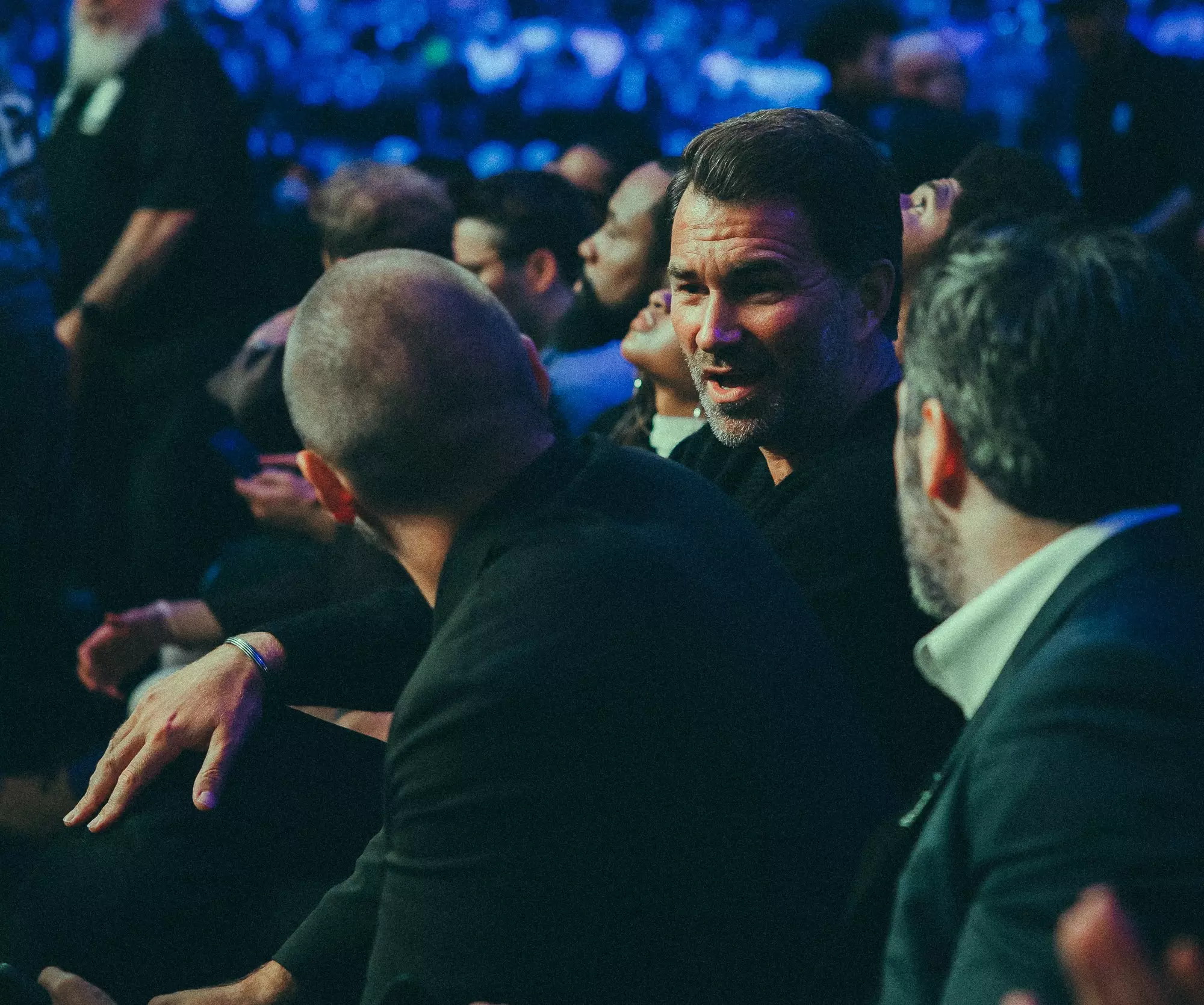In recent years, the boxing world has witnessed a surge in celebrity matches, bringing a new dynamic to a sport traditionally dominated by professional athletes. A poignant example of this phenomenon is the recent bout where 58-year-old boxing icon Mike Tyson faced off against 27-year-old YouTube sensation Jake Paul. The fight, which ended with a glaring mismatch in favor of Paul, raises profound questions about the integrity and future of boxing as a competitive sport. Promoter Eddie Hearn expressed his discontent with the spectacle while acknowledging the commercial success it achieved, illustrating the ongoing tension between entertainment and authentic sportsmanship.
Criticism from the Boxing Community
Eddie Hearn, a prominent figure in boxing promotion, articulated his reservations regarding the Paul-Tyson match, stating, “I didn’t like what I saw, and I knew I wouldn’t like what I saw.” This sentiment echoes a broader concern within the boxing community regarding the exploitation of veteran fighters. Tyson, despite his legendary status, appeared unprepared for the physical demands placed upon him by a much younger opponent. Hearn’s criticism reflects the feelings of many purists who believe that the sport should be preserved for skilled fighters rather than leveraged for monetary gain by social media influencers.
Such bouts threaten to relegate the true spirit of boxing to the background, as commercial interests increasingly overshadow the athleticism, skill, and tradition inherent in the sport. Fans and analysts alike argue that while celebrity boxing can attract a new audience, it risks diluting the essence of what makes boxing revered.
The Fine Line Between Entertainment and Sport
Hearn’s observations highlight the dichotomy between traditional boxing fans and those drawn to the sport through entertainment mediums. He noted the significant viewership and ticket sales for the Paul-Tyson event, emphasizing that finances drive the decision-making in these matchups. While this business acumen is commendable, it raises ethical questions about the responsibility of promoters and fighters. If the primary goal is to monetize celebrity culture, what becomes of the fight’s inherent competitive spirit?
The thrill of the sport lies in genuine competition, where the outcome is uncertain and the prowess of the athletes shines. Hearn speculated that a match involving a recently retired powerhouse like Gennadiy Golovkin would pose a far more intriguing rivalry, yet it carries its own risks for today’s generation of fighters like Paul. A more level playing field could lead to a stark realization for novice fighters who may not yet possess the skills needed to compete against seasoned professionals.
The interplay between celebrity and traditional sports runs deeper than a simple money-making venture. It brings forth critical discussions about the future of boxing and its identity. While events like the Paul-Tyson fight successfully attract casual viewers and reinvigorate interest in the sport, boxing purists fear that it may lead to a diminished appreciation for genuine talent and competition.
Ultimately, the boxing world stands at a crossroads, needing to balance the allure of entertainment with the sport’s rich heritage. Navigating these choppy waters will determine how future generations view the sport and who they will hold as heroes in the ring. As Eddie Hearn pointed out, “There’s no right or wrong,” but there is an undeniable need for introspection as the lines blur between sport and showbiz.


Leave a Reply